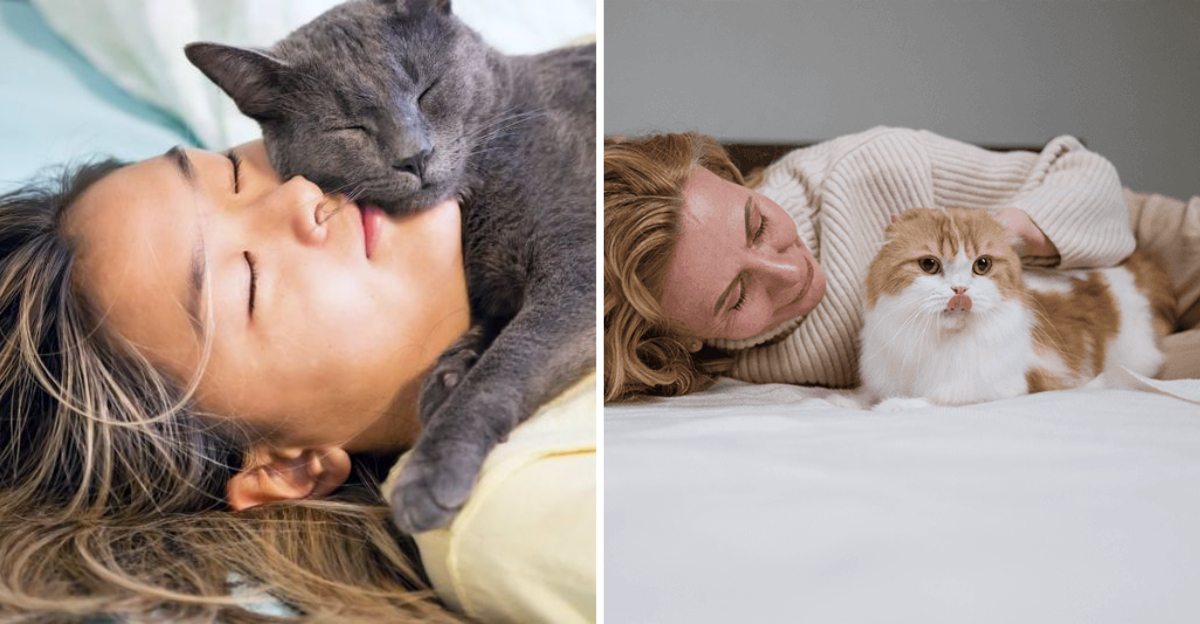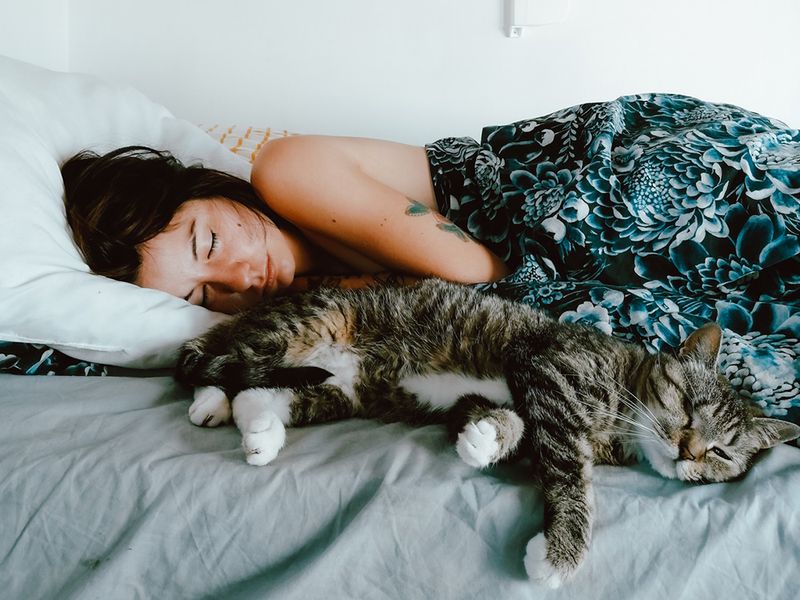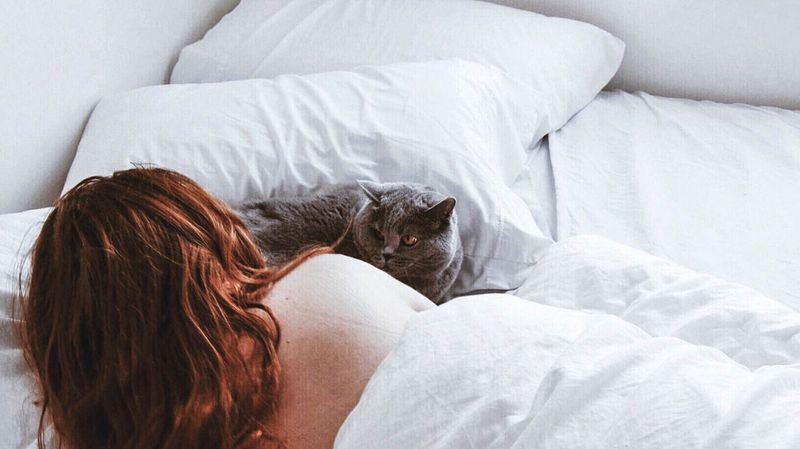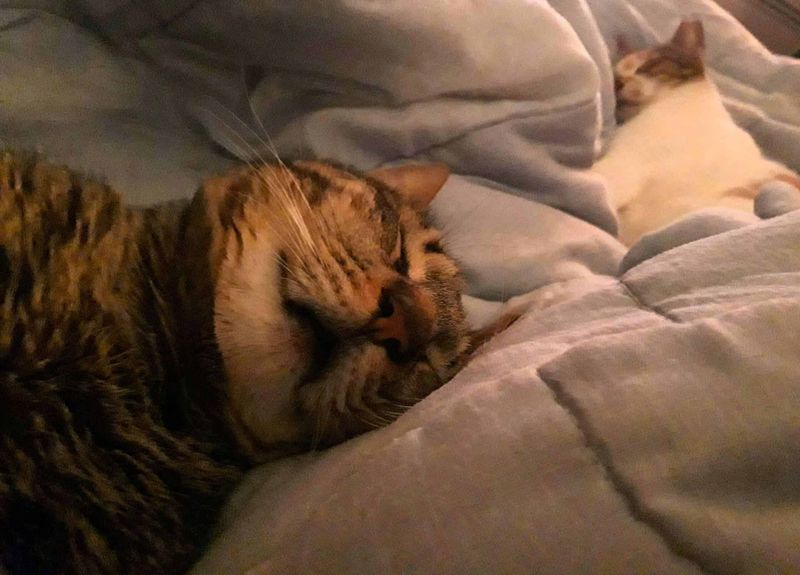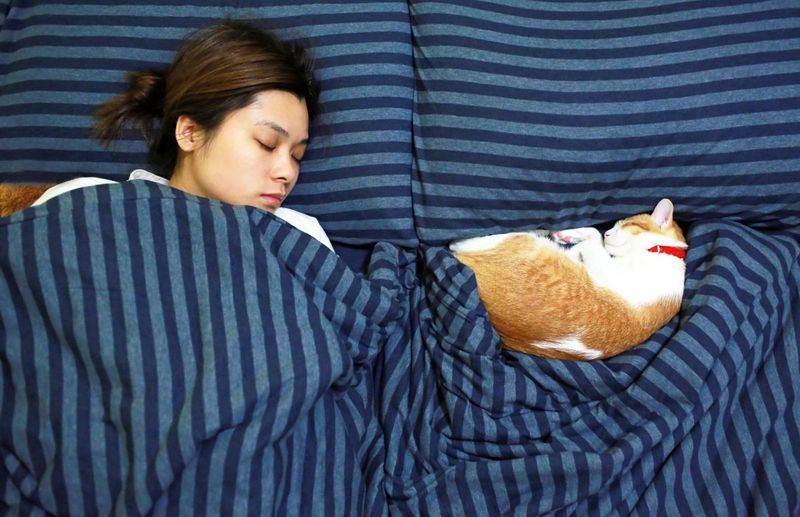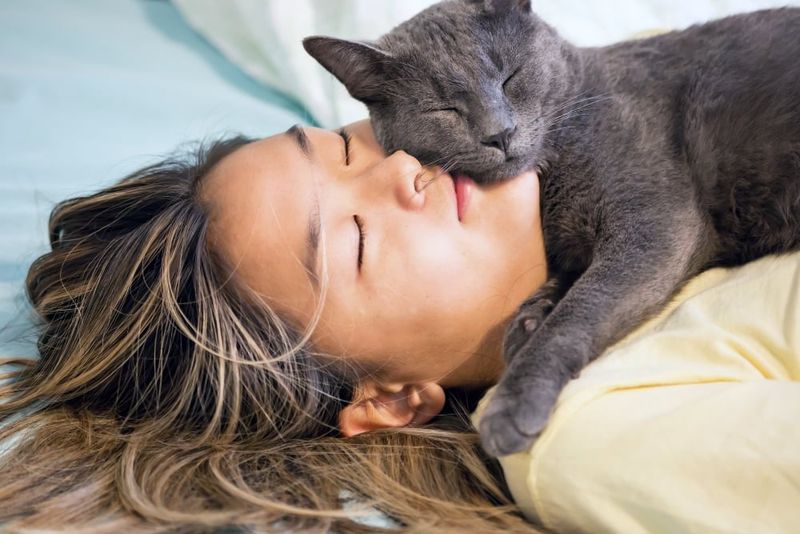📖 Table of Content:
Sharing your bed with a cat can be a delightful experience or a disruptive nuisance, depending on numerous factors. While some people find comfort in the presence of their feline friends, others experience interrupted sleep and allergy flare-ups. This blog explores the pros and cons of letting your cat share your bed, offering insights into how to create a harmonious sleeping environment for both you and your pet.
1. Emotional Comfort
Imagine the gentle purring of a cat lulling you to sleep. For many, having a feline companion in bed offers emotional comfort, enhancing feelings of security and reducing stress. This serene presence can aid in a quicker transition to sleep, wrapping you in a cocoon of tranquility. The rhythmic breathing of your pet might just be the soothing lullaby you never knew you needed. However, this benefit is subjective, varying from person to person. Have you ever felt more at ease with your furry friend nearby? This emotional bond can be a silent yet powerful sleep aid.
2. Sleep Disruption
Cats are crepuscular creatures, often active during dawn and dusk. This natural behavior can lead to sleep disruptions if your cat decides that playtime coincides with your bedtime. A pouncing, purring, or meowing feline can interrupt the deepest slumbers, leaving you bleary-eyed by morning. Nighttime antics are a common complaint among cat owners, yet some find the nocturnal energy amusing, albeit tiring. Does your cat’s midnight escapades keep you awake? While some adapt, others may need to reconsider their sleeping arrangements to ensure restful nights.
3. Allergies and Asthma
For those sensitive to allergens, sharing a bed with a cat can exacerbate issues like sneezing, coughing, and respiratory difficulties. Cat dander is a notorious allergen, capable of turning a cozy night into a sneeze-filled ordeal. This invisible nuisance can linger in your bedding, affecting sleep quality and health. Are you reaching for tissues more often than not? Consider the allergy impact before inviting your pet into bed. While love for your feline is undeniable, prioritizing health and comfort may require some adjustments.
4. Parasites and Germs
Cats, adventurous by nature, may bring unwanted guests into your bed—parasites such as fleas and ticks. These pesky intruders can cause discomfort and health issues if left unchecked. Furthermore, cats can introduce bacteria and other pathogens, making hygiene a critical concern. Are you aware of the unseen risks lurking in your sheets? Ensuring regular veterinary care and maintaining cleanliness can mitigate these concerns. A clean, critter-free bed is essential for peaceful slumber, balancing the joys of companionship with health considerations.
5. Behavioral Concerns
Territorial tendencies can arise when cats claim the bed as their own, sometimes leading to possessive behavior. Such actions might create tension, especially in households with multiple pets or family members. Have you ever witnessed your cat guarding the bed like a fortress? This territorial nature can disrupt household harmony. Establishing boundaries and providing alternative resting spots can help. While a cat’s presence is often comforting, ensuring everyone feels welcome in their own space is crucial for peace.
6. Health Considerations
Individuals with allergies, asthma, or compromised immune systems must weigh the health implications of sharing a bed with a cat. Increased exposure to allergens and pathogens demands careful consideration. Are you prioritizing your health while adoring your pet? It’s a delicate balance between love and well-being, requiring thoughtful decisions about sleeping arrangements. Keeping your bedroom a cat-free zone may enhance sleep quality and well-being. Acknowledging personal health needs is vital, even if it means sacrificing some cuddly moments.
7. Hygiene Practices
Maintaining hygiene is crucial when sharing your sleeping space with a cat. Regular grooming of your pet, frequent washing of bed linens, and a clean environment can significantly reduce risks associated with parasites and allergens. Do you practice diligent hygiene routines? These efforts can ensure a healthier and more pleasant sleeping experience for both you and your feline friend. By prioritizing cleanliness, you can enjoy the companionship of your pet without compromising on health and comfort.
